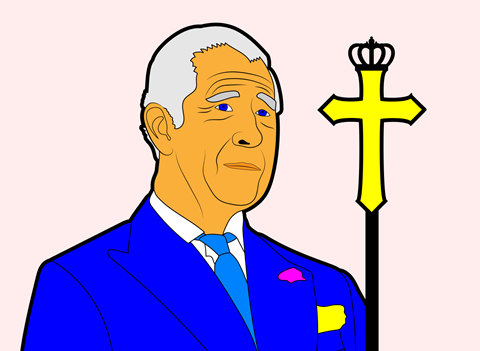It’s just possible that your inquisitive children and young people will ask you questions about the monarchy, with all the news coverage of the Queen’s passing and the new king. Andy Peck provides an ‘explainer’ so you are not caught on the hop.

What does it mean that the monarch is the Defender of the Faith and Supreme Governor of the Church of England?These are historic titles that go back to the days when Henry VIII was given the title of Defender of the Faith by Pope Leo X.
He split with the Roman Catholic Church, but it was a later monarch (Elizabeth I) who was proclaimed ‘Supreme Governor of the Church of England’. So officially it’s the monarch’s job to make sure the UK remains a Christian country.
So how does the monarch get involved in the church?They don’t really. It’s a procedural role. The Church of England is led by appointed archbishops, bishops and deacons.
Technically the monarch appoints according to the advice they are given. But the main place where decisions are made for the Church of England is the General Synod, which is made up of clergy and lay people.
Does that mean the monarch has to be a Christian?Certainly the Royal Family are all baptised into the Church of England, and the Queen was clear in her faith, and happy to share it. But whether any particular monarch is actual Christian is between them and God.
Charles III mentioned the Church of Scotland in his proclamation speech. What’s that all about?When Scotland and England formed a union in 1707, this was part of the agreement. Back then the Scots were clear they didn’t like the kind of faith the English practised.
The Church of Scotland doesn’t have a ‘head’, but the monarch undertakes to protect the Church of Scotland as part of the coronation oath and is a member of it, just as anyone in Scotland might be.
For more detail on this, go here.
Why no mention of Wales and Northern Ireland?The King is sovereign of Great Britain and Northern Ireland, but there is no ‘established’ church in Wales and Ireland. The Church in Wales was disestablished in 1920, becoming separate from the Church of England, and it ceased to be an established church for Wales with the (then) King as head.
The Church of Ireland is also no longer an established church, having ceased to be the state church in Ireland in 1869 (before Northern Ireland was created in 1921).
How does this affect us, we are not Church of England?It’s true this may not directly affect you, but some argue that because the monarch Charles promises to be defender of ‘faith’ this effectively encompasses all churches.
Certainly, in countries where the official religion is not Christianity, Christian groups may suffer as a result, especially if the majority religion is hostile to it.
Why are there so many different kinds of churches?There are different kinds of churches in the UK, and indeed around the world. They may differ on the structure (who has the power) and how they practise certain parts of their faith. Even in the Church of England there are many different styles and views about certain aspects of theology.
But in general, all churches believe Jesus is the Saviour, and Lord of the Church, and that we need to put our confidence and trust in him. So we can be friendly with people in other churches, and often work with the on projects to make Jesus known, because we basically have the same aim, even if we might go about it a different way.






































